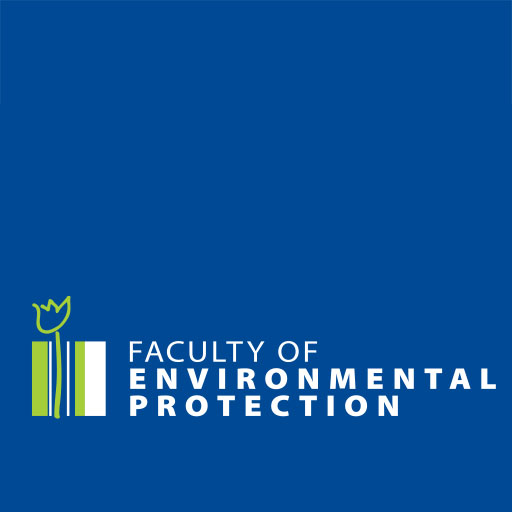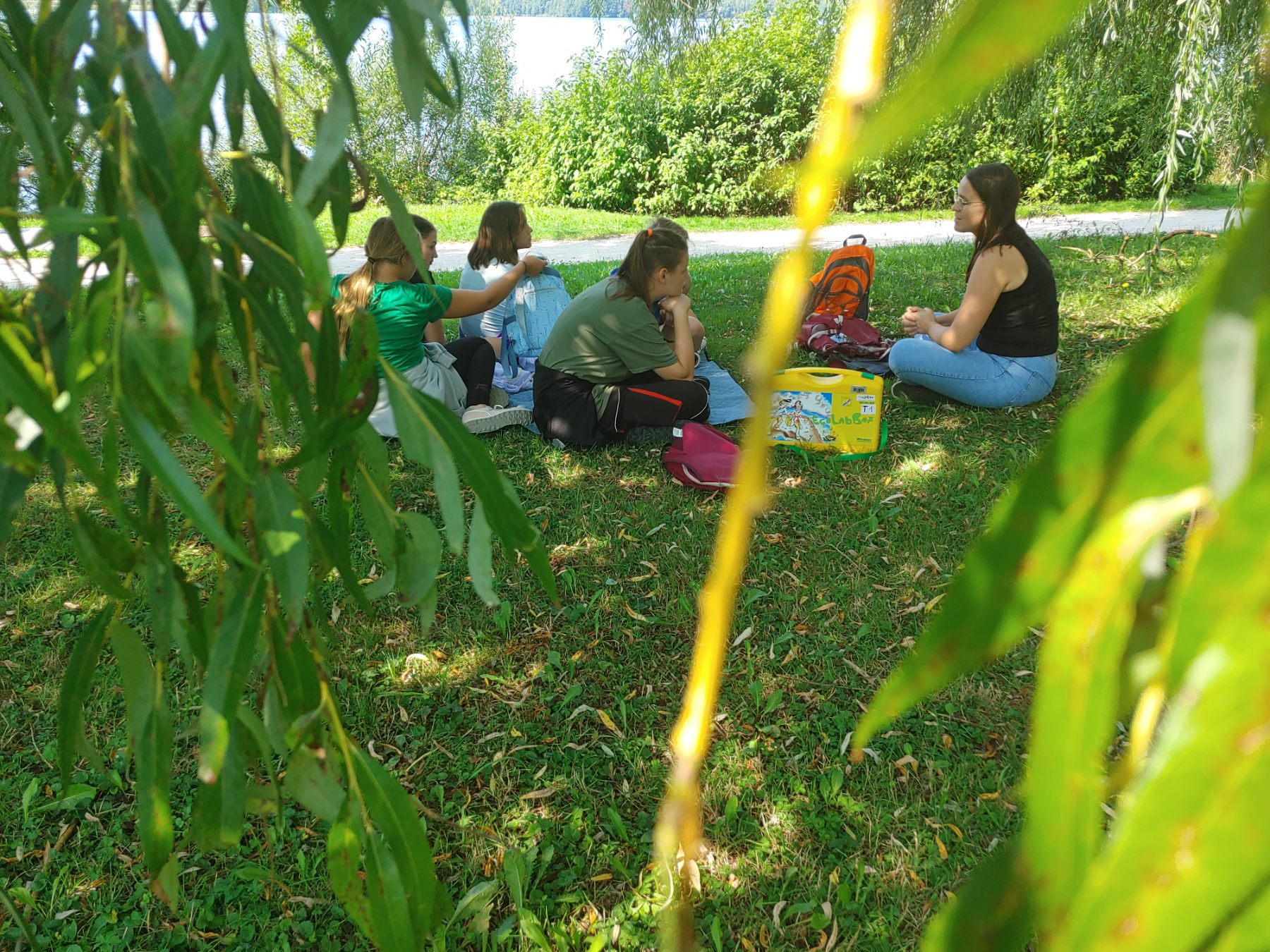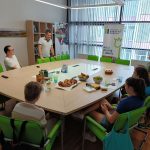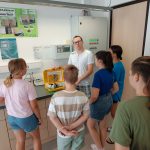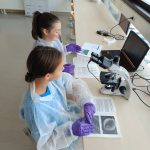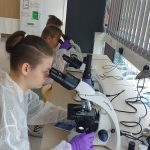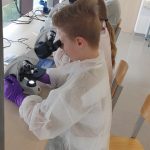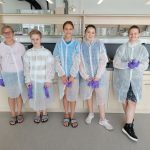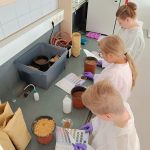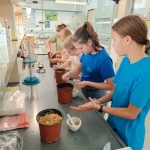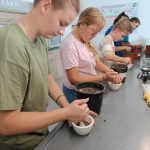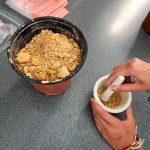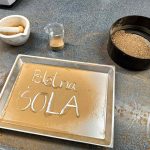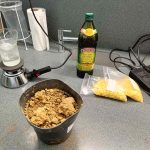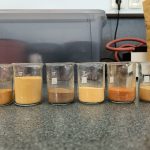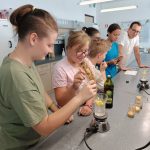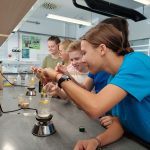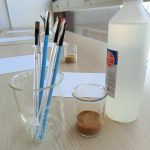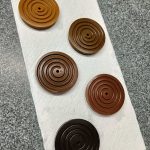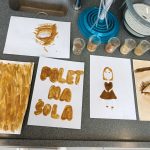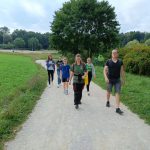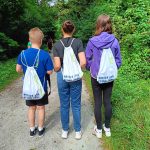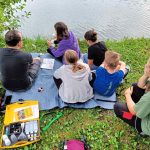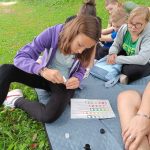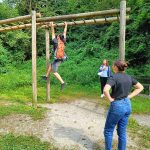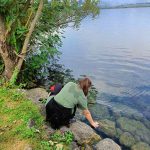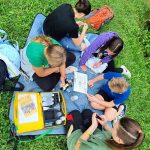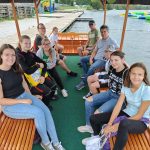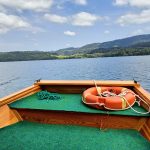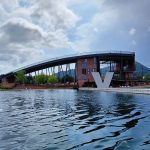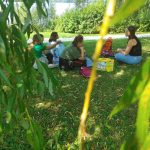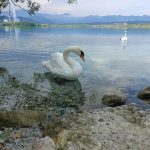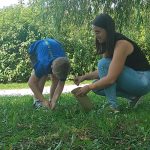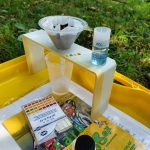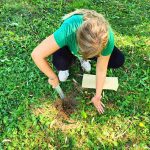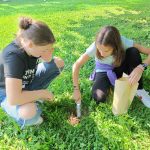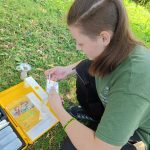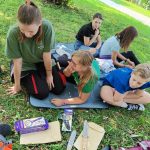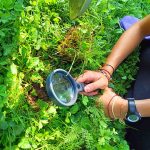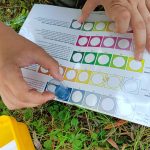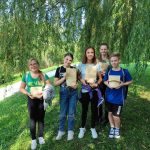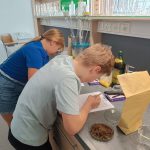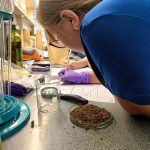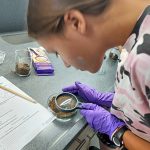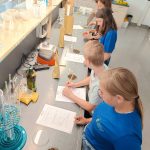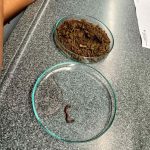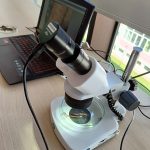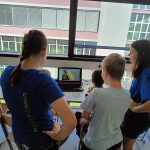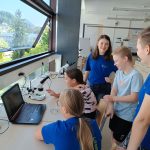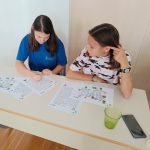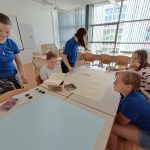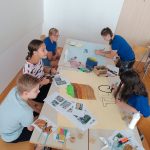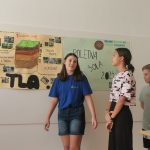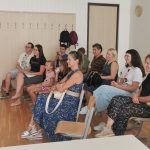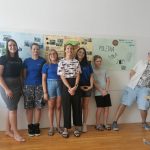From 26 until 29 of August 2024, the Faculty of Environmental Protection in Velenje once again hosted young researchers at the 2nd Summer School entitled “Small steps for big environmental changes”.
The »Laboratory in Nature« workshop focused on water bodies, while the »Footprints in the Soil« workshop dealt with soils and their important role in the environment. The topics of the workshops are highly intertwined and complementary, and over the course of three days, participants became well informed about the importance and issues of these areas of Nature.
The young scientists worked on field sampling, field analytics and the development of a field journal. The samples collected were further analysed in the Faculty’s laboratory, where they were examined in detail using stereoscopes and microscopes. They learned about rapid analytical tests to determine the state of the water and possible pollutants, and searched under the microscope for representatives of aquatic organisms, which they also identified with the use of a taxonomic key. They also used pedological tools, learned how to excavate a soil profile and how to differentiate soil horizons. They learnt about the factors that contribute to soil colour and used the manual to identify the colour code for each sample. Students increased their awareness of the importance of healthy soils by learning about the important ecosystem services that soils provide and the major threats to soils associated with them. Participants also expressed their artistic side and made wax crayons from finely ground and sieved soil in a creative workshop and drew pictures with natural shades.
DAY 1
After an initial greeting and some familiarisation games, the young researchers proceeded to the laboratory, where they first discussed the rules and safety of laboratory work. They were introduced to the microscope, under which they examined samples of various Cyanobacteria and freshwater algae. Using taxonomic keys, they then identified the various species.
Next, they learnt about the different soil colours, what determines it and used a manual to determine the colour code for each soil sample. They also learnt about the different shapes of soil structures and tested their stability.
Participants also got to express their creative side in a creative workshop. They prepared finely ground and sieved soil as a colour pigment for DIY wax crayons and acrylic paint. The result was interesting drawings in natural shades.
DAY 2
The second day was completely field-based.
Under the guidance of their mentors, the young researchers undertook field analyses using a research suitcase at Lake Škale. They analysed water samples for hardness, acidity, content of ammonia, nitrates, nitrites and phosphates. The analyses were repeated at Lake Velenje and the results were then compared.
In the afternoon, the group went for a boat ride on Lake Velenje, where they were joined by the senior lecturer Klemen Kotnik, who presented the historical background of the area and the formation of the lakes in Šaleška basin.
Next, they focused on soil exploration. Participants familiarised themselves with the ecosystem services of the soil and got hands-on with the pedological tools (for example shovel and “hori hori” knife) and obtained soil samples. They observed the soil profile and soil horizons. During the excavation, special attention was also paid to the representatives of the soil biota and their abundance. Furthermore, the acidity and phosphate content of the soil samples were measured in the field.
DAY 3
Previously collected soil samples were analysed in the Faculty’s laboratory by now fully independent young researchers. They performed a macroscopic examination, with particular attention given to possible representatives of the soil biota. They also observed soil biota movement using stereoscope.
At the conclusion of the summer school, young scientists prepared official closing event, where they presented their newly gained knowledge to their parents and faculty staff.
